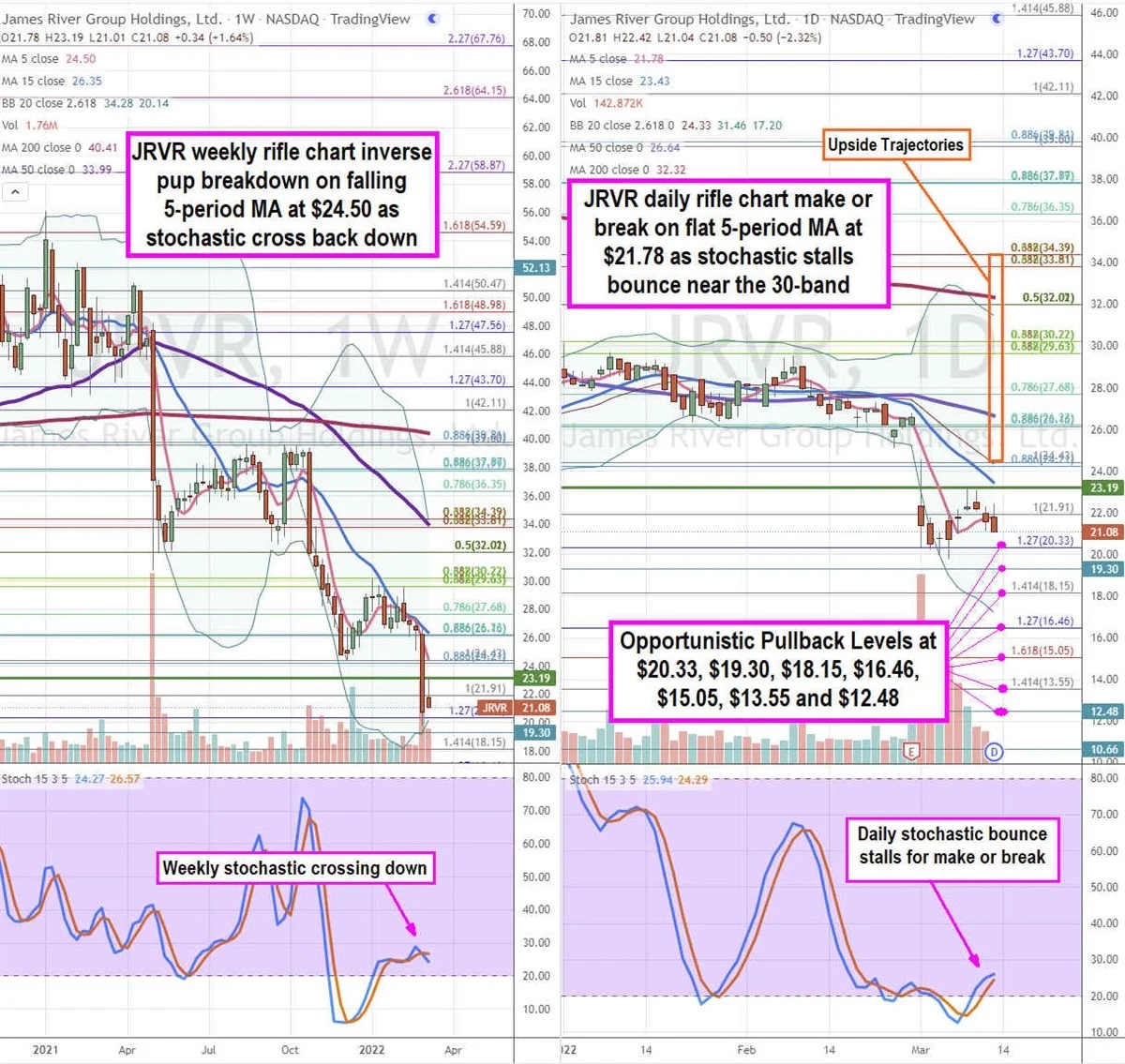Specialty insurance company James River Group (NASDAQ:JRVR) stock has been collapsing through pandemic lows. While its recent earnings were a large miss on paper, the Company has taken strategic moves in an effort to optimize its cash and risk positions. James River targets riskier insurance cases not usually covered by standard carriers including construction-related fields. Moreover, James River has seen more than $2 million of insider stock purchases by executives in March 2022. Its CEO purchased over $1 million of stock to bump up his ownership by 42% to 168.3K shares. Incidentally, the Company hasn’t seen many claims which underscore its underwriting prowess. The Company plans to earn double-digit returns on tangible common equity in 2022. Prudent investors seeking exposure in the specialty insurance segment at a discount can watch for opportunistic pullbacks in shares of James River Group to scale into a position.
Q4 2021 hedge fund letters, conferences and more
Q4 Fiscal 2021 Earnings Release
On Feb. 28, 2022, James River released its fiscal fourth-quarter 2021 results for the quarter ending December 2021. The Company reported an earnings-per-share (EPS) loss of (-$1.81) versus $0.15 consensus analyst estimates, a (-$1.96) miss. The Company saw revenues grow 6.8% year-over-year (YoY) to $207.34 million beating analyst estimates for $198.57 million. The Company cut its dividend to $0.05 per share from $0.30 per share payable on March 14, 2022. The Company saw 14.1% growth in Core Excess and Surplus Lines and a 9.5% increase in renewal pricing with underwriting profitability of 82.1%. Front grossing written premium within the Specialty Admitted segment rose 11.1% and gross fee income rose 27.1% with underwriting profitability of 84.7%.
CEO Comments
James River CEO Frank D’Orazio commented, “During the last five quarters since I joined James River as CEO, we have been keenly focused on profitably growing our E&S and fronting businesses while taking significant steps to strengthen our balance sheet and bring economic finality to our legacy runoff Commercial Auto portfolio and the majority of our historical Casualty Reinsurance reserves. With these significant reserving actions and legacy transactions behind us, and with the support of Gallatin Point fortifying our capital base, we believe we have unburdened the organization’s earnings potential, which should allow it to produce attractive future returns for shareholders. This quarter our E&S segment reported an 82.1% combined ratio while our Specialty Admitted unit grew fee income by 27.1% while also delivering an 84.7% combined ratio for the quarter, capping off a record year for underwriting profit for the segment. We believe our insurance franchises are well-positioned to perform and continue to benefit from the industry’s macro tailwinds in 2022.”
Conference Call Takeaways
CEO D’Orazio Rob Davis plans to downsize its casualty unit to focus on its insurance operations. To that end, it has crossed over a final legal hurdle having its Chief Actuary completing a deep dive of all three operating segments. With these events in the rearview mirror, the Company plans to focus on leveraging the robust underwriting conditions in the specialty E&S sector. The reserve actions in the quarter overshadowed the strong results in its E&S and SA segments with combined ratios in the mid 80% with $27 million of combined underwriting profits, the second-largest ever. Core E&S book grew 14% YoY in the quarter and 19% for 2021. Rates rose 9.5% in the E&S segment and 13.3% in 2021. He pointed out the two consecutive years of renewal rate increases over 13% as the recent quarter is the 20th consecutive quarter of E&S segment rate increases. The E&S segment manufacturers and contractors’ unit accommodates artisan and trade contractors averaging $20,000 to $30,000 premium sizes, which helps it sidestep most “problematic states for the class”. It doesn’t write new residential construction in small businesses and contract binding units. Gallatin Point Capital made a $150 million investment in convertible preferred stock with the Company.
James River Group Opportunistic Pullback Levels
Using the rifle charts on the weekly and daily time frames provides a precision view of the landscape for JRVR stock. The weekly rifle chart most recently peaked at the $29.63 Fibonacci (fib) level. Shares collapsed on earnings results causing the weekly rifle chart to form an inverse pup breakdown. The falling weekly 5-period moving average (MA) resistance is at $24.50 followed by the 15-period MA resistance at $26.35. The weekly lower Bollinger Bands (BBs) sit at $20.14. The daily rifle chart has a make or breaks resolution in a bearish inverse pup breakdown or a bullish stochastic mini pup. The daily 5-period MA is flattening at $21.78 as 15-period MA falls lower at $23.43 with daily lower BBs at $17.20. The daily 50-period MA resistance is at $26.64. The daily market structure low (MSL) buy triggers a breakout through $23.19. Prudent investors can look for opportunistic pullback levels at the $20.33 fib, $19.30 fib, $18.15 fib, $16.46 fib, $15.05 fib, $13.55 fib, and the $12.48 level. Upside trajectories range from the $24.43 fib level up to the $34.39 fib level.
Should you invest $1,000 in James River Group right now?
Before you consider James River Group, you'll want to hear this.
MarketBeat keeps track of Wall Street's top-rated and best performing research analysts and the stocks they recommend to their clients on a daily basis. MarketBeat has identified the five stocks that top analysts are quietly whispering to their clients to buy now before the broader market catches on... and James River Group wasn't on the list.
While James River Group currently has a "Buy" rating among analysts, top-rated analysts believe these five stocks are better buys.
Article by Jea Yu, MarketBeat













